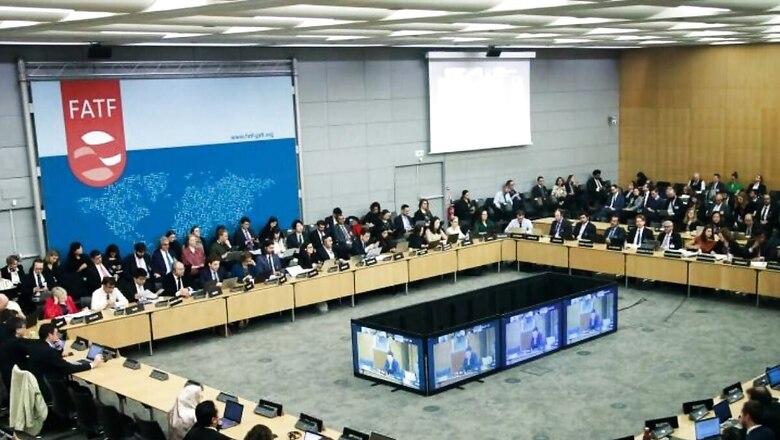
views
A delegation from the Financial Action Task Force (FATF), the global money-laundering and terrorist financing watchdog, is scheduled to visit India on Friday (November 3) as part of the ongoing assessment. The FATF team will assess the country’s anti-money laundering laws and financing of terrorism in the country, sources have said.
The 12-member FATF team, composed of representatives from the UK, Brazil, South Africa, France, Malaysia, and Russia, is travelling to India to conduct due diligence today. It will conduct meetings with representatives from the finance, revenue, and enforcement departments as well as the Reserve Bank of India (RBI).
What is the Financial Action Task Force?
The Financial Action Task Force or FATF is an inter-governmental body responsible for setting global standards on anti-money laundering and combating the financing of terrorism. India became an Observer of FATF in the year 2006 and became a member in 2010.
The global financing watchdog comprises 39 members and sets international standards to prevent illegal activities, including drugs, human trafficking and other crimes. It holds countries that do not comply with its standards to account.
The FATF membership is significant for India in its quest to become a major player in international finance and help the country to build the capacity to fight terrorism, trace terrorist money and to prosecute money laundering and terrorist financing crimes.
Why is FATF Visiting India?
India has been a member of FATF since 2010, however, the country has not been assessed in the fourth round of mutual evaluations due to the Covid-19 pandemic.
As per the FATF website, the last the mutual evaluation of India was carried out in 2010 while the onsite assessment was postponed to November 2023.
In its last mutual evaluation report of the country, the FATF stated that India continues to be a significant target for terrorist groups and has been the victim of numerous attacks.
As per sources, the FATF team will check the global transparency system apart from evaluating anti-money laundering laws and terror financing in the country. They added that the goal is to “shut down parallel economy and we have done everything very successfully” under the direction of Prime Minister Narendra Modi.
Pakistan, which was earlier in FATF’s grey list till October 2022, is reportedly doing hectic lobbying with FATF investigators to put India under the scanner, as per intelligence sources.
What FATF Said on PFI?
The Financial Action Task Force, in its latest report ‘Crowdfunding for Terrorism Financing’, making a reference to the Popular Front of India (PFI), said “violent extremist organisation under investigation” in India collected funds through “well-structured networks” including offline and online mechanisms.
Without naming PFI, it said that the organisation collected funds at mosques and public places, which were later used to procure arms and ammunition and for training the cadres, a report in The Indian Express said.
In September 2022, the Home Ministry declared the PFI along with its associates including Rehab India Foundation (RIF), Campus Front of India (CFI) and others as an “unlawful association”.
FATF ‘Grey List’ and ‘Black List’ Countries
FATF has two types of lists: Grey List’ and ‘Black List’ countries.
Those countries, which are put on its ‘Black List’, are high-risk jurisdictions and subject to a call for action. The ‘Grey List’ countries are those that are under “increased monitoring” by the international watchdog.
For countries under black and grey lists, no financial aid is given to them by the International Monetary Fund, World Bank, Asian Development Bank and European Union. These nations also face international economic and financial restrictions and sanctions.
The FATF put Pakistan on its so-called grey list in June 2018, after Islamabad failed to implement policies aimed at stamping out money laundering and the financing of international terror groups.















Comments
0 comment